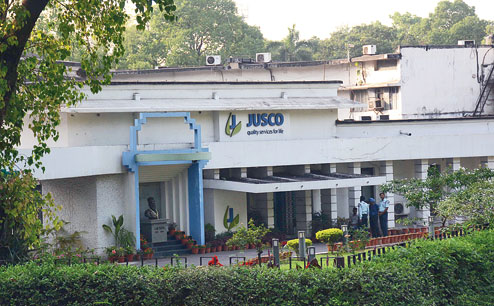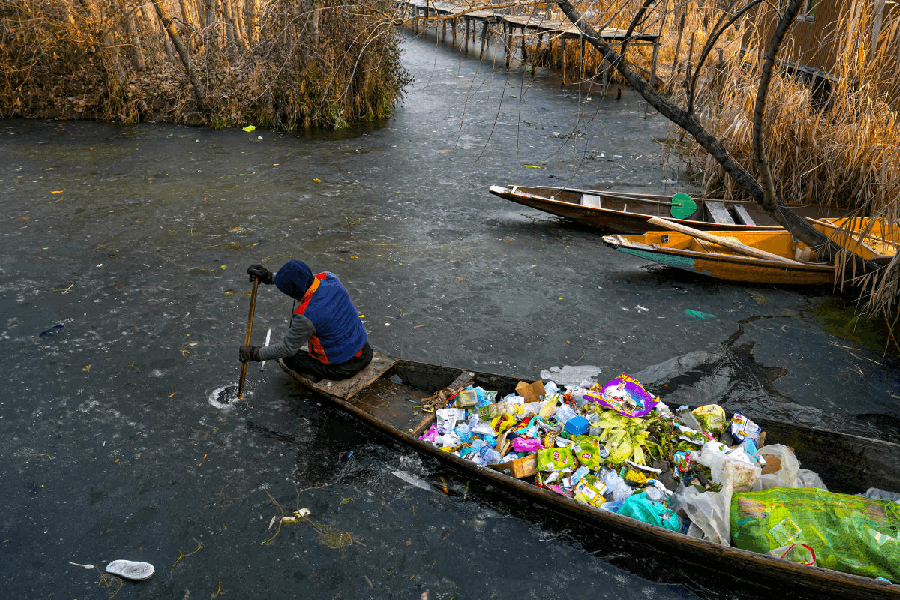
Scorched times call for stringent measures.
Tata Steel subsidiary Jusco, which looks after water supply in Jamshedpur's company command areas, has started installing water meters in homes of employees of the steel major and its allied firms.
It has also constituted a team of 60 to keep tight vigil during the water supply period (every morning and evening) and curb spill from overhead tanks.
Speaking to this correspondent, senior deputy general manager (water management and town engineering) of Jusco R.K. Singh said the decision to bring employees under the meter fold was taken to generate awareness about the need to conserve water.
"Earlier, employees of Tata Steel and its subsidiaries were privileged to have free water supply. But now, there is an increasing scarcity of fresh water globally. Even fringes of the city have spent thirsty summers in the recent past. So, we have already installed 1,000 water meters in homes of company employees and more will be installed over the next few months. The objective is to create a sense of responsibility," Singh added.
The monthly tariff for each connection is Rs 5 per kilo litre for those consuming 30 kilo litres a month. For those consuming above 30 kilo litres and till 55 kilo litres, the charge is Rs 6 per kilo litre. The tariff above 55 kilo litres is Rs 8 per kilo litre.
Jusco has asked its water vigilantes to do rounds of various neighbourhoods, especially those housing company quarters and report misuse. Tata Steel alone has more than 20,000 employees.
"We have been educating people against wasting water for the past few years. Float valve were also installed on overhead tanks to prevent overflowing. However, many people (read employees) deliberately damage the valves. The water squad will identify such cases and maintain a record of the warning given. Repeat offence will compel us to write a letter to the company (Tata Steel/subsidiaries), recommending disciplinary action against the employee concerned," said the senior Jusco executive.
The civic utilities firm supplies around 190 million litres of water to nearly 60,000 connections in the city, and maintains 640km of pipelines, 475km of sewer lines and 900km of drains.
Jusco has been a pioneer in conservation in the region for treating 100 per cent of sewage water and boasting several rainwater harvesting systems, besides recharge pits for horticultural purposes.
The company's tough call assumes significance at a time when Jamshedpur presents a grim groundwater scenario. The city had been placed in the over-exploited category in the pre-monsoon evaluation done in 2016-17 by the Directorate of Groundwater, Jharkhand, a wing of the state water resources department.
The exploitation in Jamshedpur is at 147.42 per cent while Bermo in Bokaro leads the table with 156.30 per cent followed by Topchanchi in Dhanbad at 147.72 per cent. In 2015-16, the city was better placed at 107.5 per cent.
What do you think of this strict Jusco measure?
Tell ttkhand@abpmail.com











